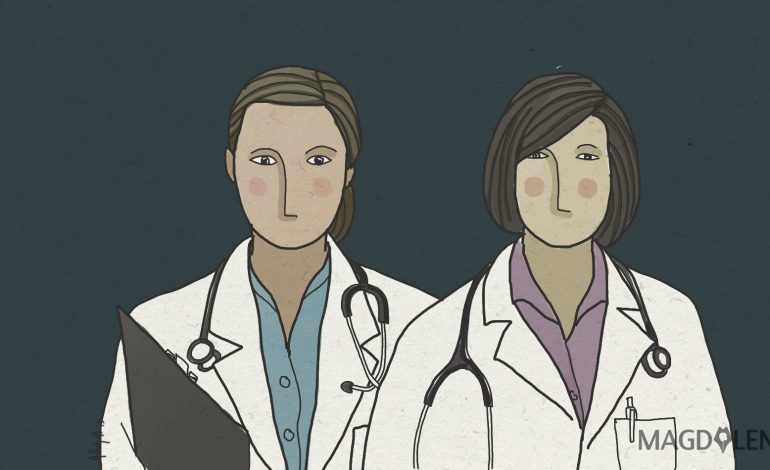
In a teaser video for her third album, Radical Optimism, Dua Lipa explained that every track has that “through-the-struggle-you-are-going-to-make-it” optimistic feeling.
She has also said that the album “taps into the pure joy and happiness of having clarity in situations that once seemed impossible to face”. She added: “The hard goodbyes and vulnerable beginnings that previously threatened to crush your soul, become milestones as you choose optimism and start to move with grace through the chaos.”
Dua Lipa’s teaser video for Radical Optimism.
This “chaos” is a feeling all too familiar for many young adults today. The philosophy of radical optimism sounds like an answer to the confusion that often accompanies our 20s and 30s. So, should we all seek to harness “radical optimism” to gain the kind of clarity and fortitude Lipa speaks of in our own lives?
I’m a pragmatist philosopher researching how we can constructively and honestly face personal and collective catastrophe. While I like the idea of fostering a hopeful and empowering outlook when facing life’s many challenges, I worry that radical optimism can have some damaging consequences.
Radical optimism isn’t a singular recognisable philosophical school of thought, so it can be hard to pin down exactly what it means.
Also read: The Tortured Poets Department: Why Taylor Swift’s Songs are Philosophy
If pessimism is the expectation that mostly bad things will happen, then optimism is the expectation that mostly good things will happen. Radical optimism stresses the importance of agency and responsibility in understanding our negative experiences, prescribing a mindset that things will ultimately work out for the better.
This might sound a lot like the deeply unscientific “law of attraction”, which suggests that positive thoughts can somehow cosmically “attract” positive outcomes, such as wealth and success. But radical optimists, much like people who follow stoicism, generally place a greater emphasis on equanimity (calmness and composure in difficult situations) than fans of the “law of attraction”. They believe that confidence and trust are better ways of dealing with problems than fear and worry.
The perceived importance of happiness and positivity is so embedded in our culture that phrases like “stay positive” or “be kind to yourself” seem to have become the common sense adages of our age.
In most cases, they serve as simple reminders not to be too hard on ourselves. This is appropriate because humans tend to suffer from a negativity bias – we notice and dwell more readily on negative experiences than positive ones. Taken too literally, however, these adages can result in “toxic positivity” – a compulsion to present an upbeat attitude, regardless of how you authentically feel.
This can be damaging as it can lead to desensitisation and even dissociation by hindering your capacity to discern your true feelings and values. It can also disconnect you from valuable experiences of sadness, frustration, anger and grief.
Radical optimism ultimately aims for a middle way between toxic positivity and fearful pessimism. But when coming from a megastar like Lipa, the message of radical optimism can feel a bit rich.
Also read: ‘Baby Reindeer’: How the Show Brings a Fresh Perspective to Male Sexual Victimisation
On the whole, with a positive attitude and appropriate efforts, things probably will work for out for privileged people like her. But is the same thing true for those living within the normal range of talents, gifts and wealth? If not, then embracing radical optimism could actually be a mild self-delusion, heightening expectations that simply can’t be met and so causing greater despair down the line.
I suspect that Lipa is not blind to this, as she has shared her own experiences of suffering and is the daughter of refugees. The album title comes from her 2021 Grammy acceptance speech, when she said:
One thing that I’ve really come to realise is how much happiness is so important. I felt really jaded at the end of my last album where I felt like I only had to make sad music to feel like it mattered … happiness is something that we all deserve and something that we all need in our lives.
These words were heartfelt and poignant, personal but also collective since they arrived on the screens of millions of people during the pandemic – probably feeling a good deal of fear and despair. In times of duress, allowing yourself to hope for future happiness is both healthy and helpful.
However, directly trying to boost our happiness has a tendency to make it recede ever further on the horizon.
Psychologists have amassed a trove of data about happiness, and it turns out that happy people rarely think about their own subjective happiness. Instead, they direct their attention towards things that they find intrinsically valuable (like personal passions or their sense of purpose) and towards their relationships with others. They also tend to be physically active and regularly feel grateful.
Also read: ‘Challengers’, New Zendaya Tennis Film in the Psychology of Competition
Meliorism and Being ‘Radically Open’
I think a better approach than radical optimism is to understand that the future is radically open. The American philosopher and psychologist John Dewey described “meliorism” as “the belief that the specific conditions which exist at one moment, be they comparatively bad or comparatively good, in any event may be bettered”. In other words, Dewey thought that we should believe that we can make progress, but understand that it demands personal and often collective efforts.
A well-grounded hope that recognises the radical openness of the future can bolster our initiative and deepen our compassion. It also avoids unhelpful forms of emotional suppression.
As the great existential psychotherapist, Irvin Yalom, said: facing the negative parts of human life (mortality, loss, isolation, uncertainty) head on can be a powerful experience that yields self-knowledge and life-sustaining meaning. It can help us to slay superficial, comfortable hopes to allow for a deeper, less shaky, form of hope to grow.
Understood in the right way, meliorism can see us through the most painful and confusing times in our life more effectively than any kind of simplistic optimism. That’s because it can remind us of our own frailty and fallibility, while at the same time affirming our agency and interdependence. It reminds us to ask for help and to believe that our habits, actions and beliefs ultimately matter in helping us find a way through.
Perhaps, meliorism is what Lipa is really referring to when she speaks of “radical optimism”. I will have to listen to the album carefully to know for sure. But I admit it: “radical meliorism” isn’t quite such a catchy title.![]()
Joshua Forstenzer, Senior Lecturer in Philosophy and Co-Director of the Centre for Engaged Philosophy, University of Sheffield
This article is republished from The Conversation under a Creative Commons license. Read the original article.






















